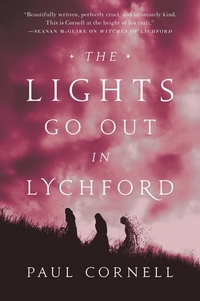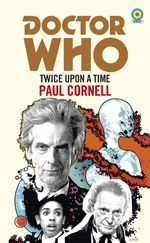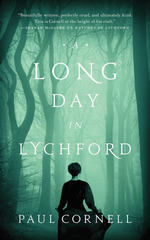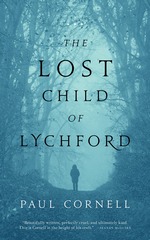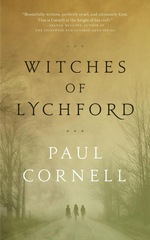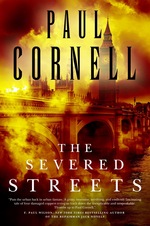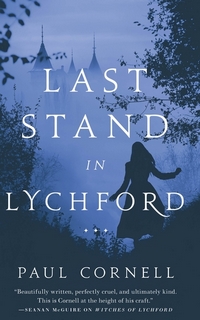 |
Last Stand in Lychfordby Paul Cornell Kindle Edition, 192 pg. Read: November 24, 2020 |

What’s Last Stand in Lychford About?
When I talked about the last book, The Lights Go Out in Lychford, I said:
The conclusion was simply fantastic and heart-wrenching—with a last line that will drive you to the online bookstore of your choice to try to order the conclusion immediately.
And it picks up right from that point—Lychford has seen plenty of trouble and conflict the last few years, but this time, it’s for all the marbles.
It’s not supposed to be a final showdown between other-worldly forces and the defenders of the town. It’s supposed to be some of the other-worldly forces just rolling into town, wiping out humanity in Lychford before moving out to the rest of the planet. But the crafty, wily, and stubborn trio that we’ve been following for the past few years have a thing or two to say about that. They may not be fully ready for what’s coming their way, but that’s not going to stop them—and as usual, we see that they’re pretty good at adapting to whatever circumstances they find themselves in.
The New Characters
What better time than the last volume of a series to introduce three major characters? (well, maybe 2 major and one minor—no pun intended). We meet both a new fairy and a new mortal (and her daughter) who both play significant roles in the final confrontation.
The fairy’s quite possibly the most helpful representative of the species we’ve encountered, as far as Autumn and Lizzie are concerned. He’s pretty entertaining as far as the reader is concerned. So that’s a win all around.
The human, Zoya, is a newish resident of Lychford—struggling to keep her and her young daughter afloat. She’s fully aware that strange things happened in town a few weeks before we meet her, but she doesn’t understand it—and is in no rush to understand. All she cares about is finding rent money so she and Jas aren’t evicted. I can’t get into her role in things but Zoya’s background, her personality, and circumstances make her a pleasant and important addition to this world and I’m glad we got to see her.
I don’t have much to say about Jas, but I enjoyed her. She was a fun burst of innocence in grim circumstances.
Autumn and Lizzie
Naturally, the most important characters to the book are our returning protagonists. Lizzie’s always been my favorite character, the one I could relate to most in this series. But…there’s a lot of what she does in this installment that just annoyed me, it didn’t feel like the same character to me (it’s likely just my mood at the time). At the same time, I connected more with Autumn here than I’m used to.
Overall, though, I appreciated their character arcs (contained in this book and over the series, both). These two women—rebuilding a friendship, learning about a whole new (to them) world of magic and strangeness and fantastical beings—are not really de rigueur in Urban Fantasy. I enjoyed them for their novelty, but more than that, I thought they were solid, well-rounded, believable characters that were just a lot of fun to spend time with.
You Might Want to Read this Next to an Open Window
There’s a claustrophobic feel to a lot of this book as Lychford is cut off from the rest of the world, and it gets worse as the book goes on. But there’s one scene in particular where Autumn is micrometers (maybe nanometers) away from probable doom. Cornell nailed that scene in a visceral way.
So, what did I think about Last Stand in Lychford?
This was exactly the conclusion this series needed. Cornell nailed the landing—teaching us a lot about the world (much of which we’d guessed, but now we know) and surprising readers the way things wrap up, while making it all feel inevitable and right. All along, this has felt like the most real, the most possible Urban Fantasy series—and even as cataclysmic events unfold, Cornell somehow makes it feel a whole lot more believable than any UF I can think of.*
* I think I said something similar about Amber Benson’s Witches Echo Park series—and the two series have a similar feel, but I think Cornell does a slightly better job of it.
This series about a tiny English town standing between two worlds, as humanity’s (unwitting) defense against beings from other worlds, other realities has really been a blast. I heartily encourage you to go back to Witches of Lychford and dive into this series.

This post contains an affiliate link. If you purchase from it, I will get a small commission at no additional cost to you. As always, opinions are my own.
![]()


